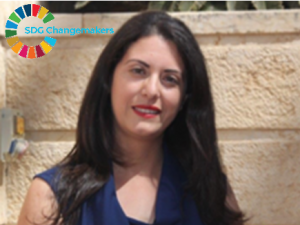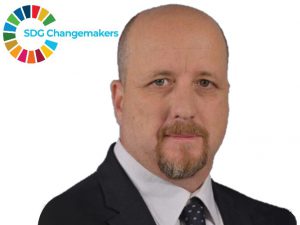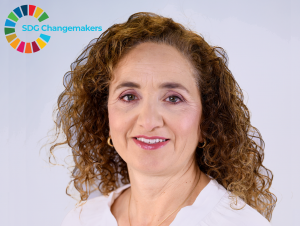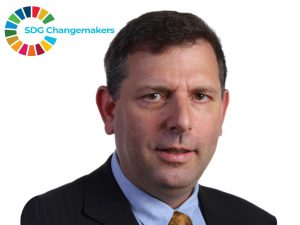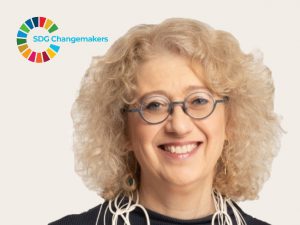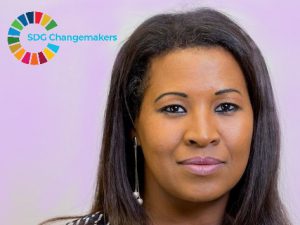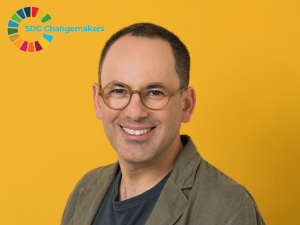Attorney Mariam Kabaha was appointed in January 2016 as Israel’s National Commissioner of the Equal Employment Opportunities Commission (EEOC).
SII: Please briefly describe your work
MK: The Equal Employment Opportunities Commission is committed to the eradication of discrimination in the Israeli work place on grounds of gender, age, nationality, religion, ethnic origin and other pretexts, striving to infuse it with the spirit of equality.
The Commission’s tasks range from the educational and professional activity to raising awareness of employee rights in Israel. In addition, the Commission is dedicated to the civil enforcement of equal employment laws. The Commission assists with handling complaints by individuals against employers and, where appropriate, will even file a civil lawsuit at the Labor Court on behalf of an individual.
SII: Name three principle values that you associate with your work
MK: We at the Commission are fighting the phenomenon of discrimination in the Israeli work place. We seek an equitable labor market, where employees are hired based on their talents and abilities alone, without any connection to their group affiliations. This kind of labor market will not only allow for economic prosperity, but will also allow us to live in a fair, equitable, and inclusive society.
SII: You are the Israeli government civil service’s highest ranking member from the Arab community. As such, how do you feel – as a woman, and specifically as an Arab woman?
MK: On a personal level, it is a victory for me to dare to follow my heart and realize my dream. I once spoke to a group of high school students in [Jerusalem’s] Beit Tzafafa and was moved by their reaction to my talk; I am excited to be a source of inspiration to Arab students. On a professional level, victory means bringing about social change in the work place; it means causing employers to consider diversity and to internalize the economic and social benefits of a diverse workforce; it means opening the doors of the labor market for everyone, without any distinction based on race, religion, nationality or gender.
SII: What positive impact do you see emerging through your activity?
MK: If 10 years ago we almost never heard the words “employment diversity” spoken together, today we are hearing them much more. I don’t want to entirely attribute this change to the Commission because there are other bodies that are working to effect this change, but most definitely the Commission has been a key player in creating this awareness and discourse. I also believe that publishing an annual – and unique – “diversity index” has fueled public discussion of what needs to improve. The figures included in this year’s index clearly point to the necessity of a joint effort by the government and the private sector. There is no escaping the need for government investment, resources and the development of a policy striving for diversity and equality in the work place. Reducing the gaps is in our national interest.
SII: How coronavirus fight impacted your work?
MK: During the Corona virus crisis, the working conditions of numerous employees from vulnerable populations were negatively affected and some were even dismissed; complaints were filed on grounds of discrimination that included place of residence, religion, nationality, age and gender. For example, we were approached with regard to employees who were forced – solely on the basis of their belonging to a certain residence and indirectly to a certain population group, with no other reason prima facie for the demand – to take a leave of absence, work from home or even be tested for coronavirus. The Commission continues to provide legal solutions in these and other cases that have subsequently arisen, in order to protect lawful rights.
Furthermore, during the crisis the Commission participated in sessions held by the Labor and Welfare Committee of the Knesset (Israeli Parliament), focusing on the impact of the coronavirus on vulnerable groups such as pregnant women and the Arab community. I myself convened cross-sector discussions in order to advance the issue of the employment of vulnerable populations during the crisis with the objective of finding practical solutions to the challenges faced by employees from these groups.
SII: What else would you like to share?
MK: Our goal is to for those who don’t yet approach us – whether out of weakness or lack of awareness – to reach out to the Commission. We seek to raise awareness of the Commission’s existence and of the opportunity to receive assistance. At the same time, we wish to raise the awareness of employers about the importance of diversity.
Readers should know that there is an address for reaching out to us. They are invited to visit our website, where they can receive updated information on the activities of the Commission.
More about Mariam Kabaha:
Attorney Kabaha was born in Nazareth and currently resides in Haifa with her husband Dr. Ihab Kabaha and their two children. She graduated from Haifa University’s Faculty of Law.
Between 1999-2010 Attorney Kabaha was a partner at a private firm specializing in civil law. From 2010-2016 she served as the EEOC’s Regional Commissioner for the district of Haifa and the North.


